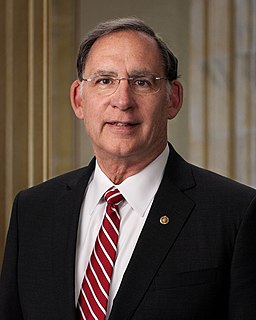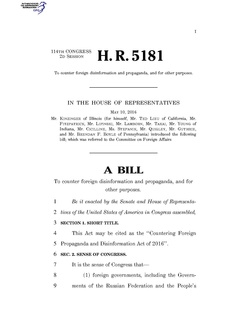Related Research Articles
Caller identification is a telephone service, available in analog and digital telephone systems, including voice over IP (VoIP), that transmits a caller's telephone number to the called party's telephone equipment when the call is being set up. The caller ID service may include the transmission of a name associated with the calling telephone number, in a service called Calling Name Presentation (CNAM). The service was first defined in 1993 in International Telecommunication Union—Telecommunication Standardization Sector (ITU-T) Recommendation Q.731.3.
Automatic number identification (ANI) is a feature of a telecommunications network for automatically determining the origination telephone number on toll calls for billing purposes. Automatic number identification was originally created by AT&T Corporation for internal long distance charging purposes, eliminating the need for telephone operators to manually request the number of the calling party for a toll call.
The National Do Not Call Registry is a database maintained by the United States federal government, listing the telephone numbers of individuals and families who have requested that telemarketers not contact them. Certain callers are required by federal law to respect this request. Separate laws and regulations apply to robocalls in the United States.

John Nichols Boozman is an American politician and former optometrist serving as the senior United States senator from Arkansas, a seat he has held since 2011. A member of the Republican Party, he was the U.S. representative for Arkansas's 3rd congressional district from 2001 to 2011. He is the dean of Arkansas's congressional delegation.

Eliot Lance Engel is an American politician who served as a U.S. representative from New York from 1989 to 2021. A member of the Democratic Party, he represented a district covering portions of the north Bronx and southern Westchester County.

The Real ID Act of 2005, Pub.L. 109–13 (text)(PDF), 119 Stat. 302, enacted May 11, 2005, is an Act of Congress that modifies U.S. federal law pertaining to security, authentication, and issuance procedure standards for drivers' licenses and identity documents, as well as various immigration issues pertaining to terrorism.

Caller ID spoofing is the practice of causing the telephone network to indicate to the receiver of a call that the originator of the call is a station other than the true originating station. This can lead to a caller ID display showing a phone number different from that of the telephone from which the call was placed.
The National Defense Authorization Act (NDAA) is the name for each of a series of United States federal laws specifying the annual budget and expenditures of the U.S. Department of Defense. The first NDAA was passed in 1961. The U.S. Congress oversees the defense budget primarily through two yearly bills: the National Defense Authorization Act and defense appropriations bills. The authorization bill is the jurisdiction of the Senate Armed Services Committee and House Armed Services Committee and determines the agencies responsible for defense, establishes recommended funding levels, and sets the policies under which money will be spent. The appropriations bill provides funds.
A robocall is a phone call that uses a computerized autodialer to deliver a pre-recorded message, as if from a robot. Robocalls are often associated with political and telemarketing phone campaigns, but can also be used for public service or emergency announcements. Multiple businesses and telemarketing companies use auto-dialing software to deliver prerecorded messages to millions of users. Some robocalls use personalized audio messages to simulate an actual personal phone call. The service is also associated to be prone to scams.
The Deceptive Practices and Voter Intimidation Prevention Act of 2007 was a bill introduced in the 110th Congress of the U.S. on January 31, 2007, by Sen. Barack Obama, Democrat of Illinois and Sen. Chuck Schumer, Democrat of New York. The bill was referred to the United States Senate Committee on the Judiciary and on October 4, 2007, was referred to the Senate, although it never received a vote.
Stem Cell Research Enhancement Act was the name of two similar bills that both passed through the United States House of Representatives and Senate, but were both vetoed by President George W. Bush and were not enacted into law.
The Violent Radicalization and Homegrown Terrorism Prevention Act of 2007 was a bill sponsored by Rep. Jane Harman (D-CA) in the 110th United States Congress. Its stated purpose is to deal with "homegrown terrorism and violent radicalization" by establishing a national commission, establishing a center for study, and cooperating with other nations.

GovTrack.us is a website developed by then-student Joshua Tauberer. It is based in Washington, D.C., and was launched as a hobby. It enables its users to track the bills and members of the United States Congress. Users can add trackers to certain bills, thereby narrowing the scope of the information they receive. The website collects data on members of Congress, allowing users to check members' voting records and attendance relative to their peers. It propagates the ideology of increasing transparency in the government and building better communication between the general public and the government. The website was briefly "on pause" in September 2020 in protest of President Trump's refusal to commit to a peaceful transition of power regarding the 2020 U.S. Presidential Election.

The Local Community Radio Act is an act of broadcast law in the United States, explicitly authorizing the Federal Communications Commission (FCC) to license local low-power broadcasting in the FM broadcast band (LPFM). After five years and four versions, it passed the U.S. Congress in 2010, granting equal protection to community radio stations with regard to translator and booster stations. All three types of stations remain secondary to full-power radio stations, which are typically owned by major corporations and nonprofits. The act negates the Radio Broadcasting Preservation Act of 2000, which enacted prevented community LPFM stations on the basis of RF interference.
Phone hacking is the practice of exploring a mobile device often using computer exploits to analyze everything from the lowest memory and central processing unit levels up to the highest file system and process levels. Modern open source tooling has become fairly sophisticated as to be able to "hook" into individual functions within any running App on an unlocked device and allow deep inspection and modification of their functions.
The Omnibus Counterterrorism Act of 1995, or US Senate bills S.390 and S.761. were two bills introduced by then-Senator Joe Biden and Senator Tom Daschle on behalf of the Clinton Administration on February 10, 1995. The bill was co sponsored by Senators Alfonse D'Amato, Dianne Feinstein, Bob Kerrey, Herb Kohl, Jon Kyl, Barbara A. Mikulski and Arlen Specter. Representative Chuck Schumer sponsored the bill in the US House of Representatives. Both bills were never put to a vote, although a significantly altered version of the House bill became law as the Antiterrorism and Effective Death Penalty Act of 1996.

The Cyber Intelligence Sharing and Protection Act was a proposed law in the United States which would allow for the sharing of Internet traffic information between the U.S. government and technology and manufacturing companies. The stated aim of the bill is to help the U.S. government investigate cyber threats and ensure the security of networks against cyberattacks.

Countering Foreign Propaganda and Disinformation Act is a bipartisan bill that was introduced by the United States Congress on 10 May 2016. The bill was initially called the Countering Information Warfare Act.
The Truth in Music Advertising act or bill, also known as Truth in Music Performance Advertising or simply Truth in Music, is legislation, adopted into state law by most U.S. states, that aims to protect the trademark of musical recording artists. The legislation provides that the name of a famous musical group cannot be used by a group of performers unless they include at least one member of the original group. The intent of the legislation is to prevent unfair or deceptive trade practices, and to protect the livelihood of musicians who were in famous musical groups.
References
- ↑ Sirkin, Corrie (September 11, 2011). "Don't Believe Your Eyes: Spoofing". Archived from the original on September 28, 2011. Retrieved November 19, 2020.
- ↑ "Congress outlaws all Caller ID spoofing (VoIP too)". Ars Technica. 15 April 2010. Retrieved 14 June 2015.
- ↑ "Caller ID and Spoofing" . Retrieved 14 June 2015.
- ↑ "Truth in Caller ID Act of 2006 (2006; 109th Congress H.R. 5126) - GovTrack.us". GovTrack.us. Retrieved 14 June 2015.
- ↑ Senate Bill S.704. Retrieved from http://thomas.loc.gov/cgi-bin/bdquery/z?d110:s.00704:.
- ↑ House Bill HR251. Retrieved from http://thomas.loc.gov/cgi-bin/bdquery/z?d110:HR251: Archived 2014-12-12 at the Wayback Machine .
- ↑ "Truth in Caller ID Act of 2007 (2007; 110th Congress S. 704) - GovTrack.us". GovTrack.us. Retrieved 14 June 2015.
- ↑ "Truth in Caller ID Act of 2010 (2010; 111th Congress H.R. 1258) - GovTrack.us". GovTrack.us. Retrieved 14 June 2015.
- ↑ "Truth in Caller ID Act of 2009 (2010; 111th Congress S. 30) - GovTrack.us". GovTrack.us. Retrieved 14 June 2015.
- ↑ Peters, Jeremy W. (12 August 2011). "At The Times, Era of '111-111-1111' Nears Its End". The New York Times (Media Decoder blog). Retrieved August 12, 2011.
- ↑ "California telemarketer fined $10M by FCC over political ad". San Francisco Chronicle. November 18, 2020. Retrieved November 19, 2020.